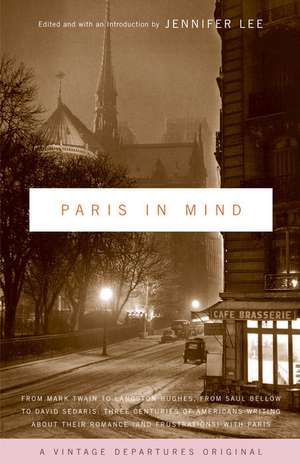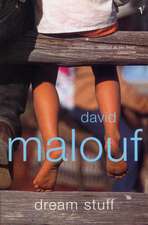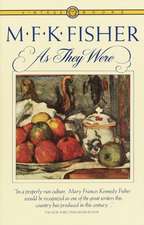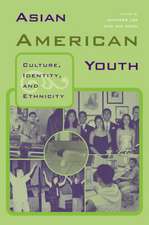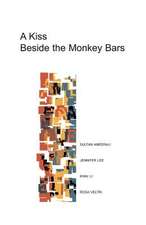Paris in Mind: Vintage Departures
Editat de Jennifer Leeen Limba Engleză Paperback – 30 iun 2003
Including essays, book excerpts, letters, articles, and journal entries, this seductive collection captures the long and passionate relationship Americans have had with Paris. Accompanied by an illuminating introduction, Paris in Mind is sure to be a fascinating voyage for literary travelers.
Jennifer Allen * Deborah Baldwin * James Baldwin * Dave Barry * Sylvia Beach * Saul Bellow * Bricktop * Art Buchwald * T. S. Eliot * M.F.K. Fisher * Janet Flanner * Benjamin Franklin * Ernest Hemingway *Langston Hughes * Thomas Jefferson * Stanley Karnow * Patric Kuh * A. J. Liebling * Anaïs Nin * Grant Rosenberg * David Sedaris * Irwin Shaw *Gertrude Stein * Mark Twain * Edith Wharton * E. B. White
Din seria Vintage Departures
-
 Preț: 108.09 lei
Preț: 108.09 lei -
 Preț: 108.91 lei
Preț: 108.91 lei -
 Preț: 109.73 lei
Preț: 109.73 lei -
 Preț: 90.64 lei
Preț: 90.64 lei -
 Preț: 104.58 lei
Preț: 104.58 lei -
 Preț: 99.60 lei
Preț: 99.60 lei -
 Preț: 109.95 lei
Preț: 109.95 lei -
 Preț: 107.46 lei
Preț: 107.46 lei -
 Preț: 108.50 lei
Preț: 108.50 lei -
 Preț: 103.53 lei
Preț: 103.53 lei -
 Preț: 95.10 lei
Preț: 95.10 lei -
 Preț: 117.69 lei
Preț: 117.69 lei -
 Preț: 107.05 lei
Preț: 107.05 lei -
 Preț: 138.12 lei
Preț: 138.12 lei -
 Preț: 111.71 lei
Preț: 111.71 lei -
 Preț: 116.36 lei
Preț: 116.36 lei -
 Preț: 108.50 lei
Preț: 108.50 lei -
 Preț: 128.33 lei
Preț: 128.33 lei -
 Preț: 114.79 lei
Preț: 114.79 lei -
 Preț: 109.54 lei
Preț: 109.54 lei -
 Preț: 106.76 lei
Preț: 106.76 lei -
 Preț: 107.46 lei
Preț: 107.46 lei -
 Preț: 121.63 lei
Preț: 121.63 lei -
 Preț: 109.95 lei
Preț: 109.95 lei -
 Preț: 75.68 lei
Preț: 75.68 lei -
 Preț: 91.27 lei
Preț: 91.27 lei -
 Preț: 105.54 lei
Preț: 105.54 lei -
 Preț: 100.23 lei
Preț: 100.23 lei -
 Preț: 91.13 lei
Preț: 91.13 lei -
 Preț: 111.58 lei
Preț: 111.58 lei -
 Preț: 104.58 lei
Preț: 104.58 lei -
 Preț: 90.72 lei
Preț: 90.72 lei -
 Preț: 92.01 lei
Preț: 92.01 lei -
 Preț: 119.23 lei
Preț: 119.23 lei -
 Preț: 136.59 lei
Preț: 136.59 lei -
 Preț: 132.88 lei
Preț: 132.88 lei -
 Preț: 118.51 lei
Preț: 118.51 lei -
 Preț: 88.68 lei
Preț: 88.68 lei -
 Preț: 118.51 lei
Preț: 118.51 lei -
 Preț: 114.79 lei
Preț: 114.79 lei -
 Preț: 105.29 lei
Preț: 105.29 lei -
 Preț: 104.56 lei
Preț: 104.56 lei -
 Preț: 99.41 lei
Preț: 99.41 lei -
 Preț: 88.66 lei
Preț: 88.66 lei -
 Preț: 94.10 lei
Preț: 94.10 lei -
 Preț: 99.82 lei
Preț: 99.82 lei -
 Preț: 125.54 lei
Preț: 125.54 lei -
 Preț: 114.38 lei
Preț: 114.38 lei -
 Preț: 101.17 lei
Preț: 101.17 lei
Preț: 110.28 lei
Nou
Puncte Express: 165
Preț estimativ în valută:
21.11€ • 21.95$ • 17.66£
21.11€ • 21.95$ • 17.66£
Carte disponibilă
Livrare economică 21 februarie-07 martie
Preluare comenzi: 021 569.72.76
Specificații
ISBN-13: 9781400031023
ISBN-10: 1400031028
Pagini: 288
Dimensiuni: 131 x 203 x 16 mm
Greutate: 0.2 kg
Ediția:Vintage Departu.
Editura: Vintage Publishing
Seria Vintage Departures
ISBN-10: 1400031028
Pagini: 288
Dimensiuni: 131 x 203 x 16 mm
Greutate: 0.2 kg
Ediția:Vintage Departu.
Editura: Vintage Publishing
Seria Vintage Departures
Notă biografică
Jennifer Lee is an experienced editor with two previous anthologies, Martial Arts Are Not Just for Kicking Butt and 2sexE: Urban Tales of Love, Liberty and the Pursuit of Gettin' It On. She lives in the Bay Area in California and is happy to trade Paris and San Francisco restaurant tips.
Extras
Introduction
There’s a maxim that goes something like this: When good Americans die, they go to heaven; if they’ve been very good, they go to Paris. Americans have been heeding the maxim for more than three centuries, from Benjamin Franklin, Mark Twain, Anaïs Nin to Dave Barry and David Sedaris, all of them collected here. Many of us cheat and get there a little before we’ve actually earned it.
I first saw Paris when I was twelve years old and on a chaperoned school tour of the great (read: old) cities of Europe. Paris felt like a respite from Europe’s ancient ruins. In Paris, we kids went gallivanting in parks, checked out bookstalls near the Seine, ate too many pastries and tried to pass as older than we were. We snuck out of our hotel at four in the morning and walked to the Eiffel Tower unchaperoned. The city was still and quiet, and we could hear the crunch of dirt and gravel beneath our feet. We felt powerful to be alone, except for the few elderly people walking their tiny French dogs or feeding the city’s many pigeons.
I realize now that my youthful excitement didn’t just come from being in a beautiful city. Racing like wild children along the banks of the Seine, or weaving through a crowd of people on the Champs Élysées, discovering more bookstores than I’d ever seen in my twelve-year old lifetime and watching adults sitting and talking in cafés, I sensed then that there was a way of life different than the one I knew back in my dusty, rural California hometown.
The second time I saw Paris, I was in love. We had flown to Paris on a whim. Paris felt like a respite from the daily grind. We strolled along the Seine, ate too many pastries and behaved more youthful than our age. M.F.K. Fisher in her book, The Gastronomical Me, advises that Paris “should always be seen, the first time, with the eyes of childhood or of love.” We’re especially lucky if we’ve seen Paris both ways.
So seductive is the idea of Paris in America that even those who have never set foot in the city fall in love with it. You don’t even have to be a Francophile. Paris is one of the few cities in the world that defines an entire country, yet stands singular and apart from it. To some, their love for Paris is part of a broader love of all things French. To others, it’s discrete. They love Paris and only Paris.
Gertrude Stein believed that when we talked about France, we were really talking about Paris. That was when she wrote, “Paris was where the twentieth century was.” She was writing not so much about political power or technological progress, but of contributions in the arts and in the things more loosely called civilization, the art of living well. It was perhaps more true in the early twentieth century than it is today. Today, art, literature, culture and fashion are no longer the sole domains of haute Paris, and Paris is no longer the only French destination for Americans and other travelers. When people talk about Paris, it’s no longer a given that we mean France in general and vice versa. Yet to so many, by the power of imagination or myth, Paris remains sui generis, and the most seductive of cities.
How seductive is Paris?
So seductive is it that God is seduced in Saul Bellow’s essay My Paris. Bellow writes, “God would be perfectly happy in France because he would not be troubled by prayers, observances, blessings and demands for the interpretation of difficult dietary questions. Surrounded by unbelievers He too could relax toward evening, just as thousands of Parisians do at their favorite cafés.”
So seductive is Paris that long after one’s affair in Paris has ended, many continue their affairs with the city itself.
So seductive is Paris that even its winters can’t hide its charms for long. Irwin Shaw laments the cold season as he writes in Paris in Winter, “The most openly loving of cities, it is the coldest when the lovers are driven indoors. [In Paris] it is impossible to overlook the unheroic fact that not enough people kiss in the rain or at five degrees below zero.” Shaw describes the anti-Paris in winter, and still, he can’t help being captivated all over again when the sun comes out for the briefest of moments.
Much of the seduction comes from the long history of U.S.-French relationship: we revolt against the British—the French give us ships and money; they’re occupied by the Germans—we invade Normandy and liberate them; they invent film—we make an industry out of it; we make B action flicks—they name it “film noir”; they’re crazy about Jerry Lewis—we fall in love with Catherine Deneuve. They gave us the most American of American icons, the Statue of Liberty. The Americans and French have held a political, cultural, economic and artistic dialog for more than three centuries. In many ways, we—Americans and Parisians—are both our best and worst reflections.
The stories about Paris that I read as a teenager made at least as big an impression as my first visit to the city. In general, Paris isn’t a city for twelve-year-olds the way some cities are—cities like, say, Orlando, Florida—even now, despite Euro Disney. The first book about Paris that I read was Ernest Hemingway’s A Moveable Feast, and I haven’t yet outgrown the love it first inspired for the City of Light. Reading about grown-up Parisian adventures revealed future possibilities for this restless teenager, and it made me aspire to see Paris as a grown up.
I suspect many Francophiles have a similarly worn and beloved book about Paris. Without a doubt, the American artists, writers and musicians who went to Paris have influenced much of our fascination and love for this city. It is they who inspired this collection in that they first sparked my love of Paris.
I’m not alone in my fondness for the City of Light. Travel between the U.S. and France has always been strong. Americans still comprise the largest group of tourists to Paris annually despite the significant decrease immediately following September 11, 2001, and the Travel Industry Association of America expects air travel to return to normal levels by late 2004 or 2005. The history of travel between Americans and the French, which spans centuries, not decades, attest to our mutual strange fascination with each other.
One of the legacies of this long relationship has been great American literature about Paris and about being an American in Paris.
A few words about how this book was put together and what you’ll find here: though I searched far and wide to collect the pieces in Paris in Mind, I also relied on the familiar literature on Paris. This is not a collection of unknown, never-before-seen Paris dispatches, and you’ll find some familiar suspects such as Ernest Hemingway, Gertrude Stein and Thomas Jefferson. Some Americans have been so important to the way we imagine Paris, that without them no Paris collection could offer a full sense of Franco-American relationship.
Secondly, many pieces are presented here, but many more have been left out for editorial or practical reasons. As an editor, I naturally wanted to read everything that I found, that was recommended, or that simply came my way; I wanted readers to have a chance to read everything I read, too. As a fellow reader, however, the process of editorial research wasn’t the reading experience I’d wish to inflict on innocent readers, simply because not everything you read turns out to be a find.
Lastly, I followed two goals for this collection: pleasure and variety. A selected piece had to be a pleasure to read or offer a perspective, or examine a topic, that testified to the breadth of American interests and experiences in Paris. This is, admittedly, a subjective process. In general, I found that people for whom writing was their vocation wrote more vividly and thoughtfully about their experiences in Paris than those whose lives didn’t depend on their prose. So, the book includes pieces that are almost all authored by professional writers, rather than by celebrities, musicians, politicos and so forth.
In some cases, I included pieces that played off of other selections and thus, provide a sense of dialog between eras or between writers. The two pieces by Edith Wharton (an excerpt from A Backward Glance) and E.B. White (Liberation of Paris) are good examples. They’re both about Paris and the end of a war, for Wharton the First World War and for White the Second World War: two different wars and writers, but the same overwhelming sense of emotion surfaces when each writer learns that the city they love so much is out of danger.
T.S. Eliot’s and Anaïs Nin’s pieces are another example. In his letter to the American poet, Robert McAlmon, Eliot admires French literary tradition because of its overarching sense of history, whereas Nin in her diary complains, “There is a monster in Paris called the Literary Tradition.” Eliot is the scholar and great critic, while Nin the mystic and bohemian. Two American writers with different opinions about French literature reveal vastly differing sensibilities about life. In turn, they give away diverging approaches to their own literary work.
A friend asked: If I read this book, will I quit my job and move to Paris? Will I hate the French for being better at everything, and skinnier? Will I finally be convinced that frog tastes just like chicken? Will I understand myself better as an American?
If you’ve picked up this book, you might be someone who has already once quit his or her job and moved to Paris. You might be someone who already knows that frog doesn’t taste just like chicken, it tastes more like rabbit. Just as likely, you might be someone who has never visited Paris except through movies, Cole Porter songs and the travel articles of your local Sunday paper. In any case, you probably already hate the French for being skinnier. We all do. This book won’t really change that because—bad news—they’re even thinner in Paris.
As for my friend’s question, Will I understand myself better as an American? I hope so. These American stories about Paris comprise a catalog of tastes, fashions, social rules, and expectations, not only of what we think it is to be Parisian but also what we think it is to be American.
Finally, if you’ve never been an American in Paris, I think you’ll want to be.
If you already have been, you’ll want to again. When M.F.K. Fisher wrote that Paris “should always be seen, the first time, with the eyes of childhood or of love,” she assumed we’d see Paris again and again.
There’s a maxim that goes something like this: When good Americans die, they go to heaven; if they’ve been very good, they go to Paris. Americans have been heeding the maxim for more than three centuries, from Benjamin Franklin, Mark Twain, Anaïs Nin to Dave Barry and David Sedaris, all of them collected here. Many of us cheat and get there a little before we’ve actually earned it.
I first saw Paris when I was twelve years old and on a chaperoned school tour of the great (read: old) cities of Europe. Paris felt like a respite from Europe’s ancient ruins. In Paris, we kids went gallivanting in parks, checked out bookstalls near the Seine, ate too many pastries and tried to pass as older than we were. We snuck out of our hotel at four in the morning and walked to the Eiffel Tower unchaperoned. The city was still and quiet, and we could hear the crunch of dirt and gravel beneath our feet. We felt powerful to be alone, except for the few elderly people walking their tiny French dogs or feeding the city’s many pigeons.
I realize now that my youthful excitement didn’t just come from being in a beautiful city. Racing like wild children along the banks of the Seine, or weaving through a crowd of people on the Champs Élysées, discovering more bookstores than I’d ever seen in my twelve-year old lifetime and watching adults sitting and talking in cafés, I sensed then that there was a way of life different than the one I knew back in my dusty, rural California hometown.
The second time I saw Paris, I was in love. We had flown to Paris on a whim. Paris felt like a respite from the daily grind. We strolled along the Seine, ate too many pastries and behaved more youthful than our age. M.F.K. Fisher in her book, The Gastronomical Me, advises that Paris “should always be seen, the first time, with the eyes of childhood or of love.” We’re especially lucky if we’ve seen Paris both ways.
So seductive is the idea of Paris in America that even those who have never set foot in the city fall in love with it. You don’t even have to be a Francophile. Paris is one of the few cities in the world that defines an entire country, yet stands singular and apart from it. To some, their love for Paris is part of a broader love of all things French. To others, it’s discrete. They love Paris and only Paris.
Gertrude Stein believed that when we talked about France, we were really talking about Paris. That was when she wrote, “Paris was where the twentieth century was.” She was writing not so much about political power or technological progress, but of contributions in the arts and in the things more loosely called civilization, the art of living well. It was perhaps more true in the early twentieth century than it is today. Today, art, literature, culture and fashion are no longer the sole domains of haute Paris, and Paris is no longer the only French destination for Americans and other travelers. When people talk about Paris, it’s no longer a given that we mean France in general and vice versa. Yet to so many, by the power of imagination or myth, Paris remains sui generis, and the most seductive of cities.
How seductive is Paris?
So seductive is it that God is seduced in Saul Bellow’s essay My Paris. Bellow writes, “God would be perfectly happy in France because he would not be troubled by prayers, observances, blessings and demands for the interpretation of difficult dietary questions. Surrounded by unbelievers He too could relax toward evening, just as thousands of Parisians do at their favorite cafés.”
So seductive is Paris that long after one’s affair in Paris has ended, many continue their affairs with the city itself.
So seductive is Paris that even its winters can’t hide its charms for long. Irwin Shaw laments the cold season as he writes in Paris in Winter, “The most openly loving of cities, it is the coldest when the lovers are driven indoors. [In Paris] it is impossible to overlook the unheroic fact that not enough people kiss in the rain or at five degrees below zero.” Shaw describes the anti-Paris in winter, and still, he can’t help being captivated all over again when the sun comes out for the briefest of moments.
Much of the seduction comes from the long history of U.S.-French relationship: we revolt against the British—the French give us ships and money; they’re occupied by the Germans—we invade Normandy and liberate them; they invent film—we make an industry out of it; we make B action flicks—they name it “film noir”; they’re crazy about Jerry Lewis—we fall in love with Catherine Deneuve. They gave us the most American of American icons, the Statue of Liberty. The Americans and French have held a political, cultural, economic and artistic dialog for more than three centuries. In many ways, we—Americans and Parisians—are both our best and worst reflections.
The stories about Paris that I read as a teenager made at least as big an impression as my first visit to the city. In general, Paris isn’t a city for twelve-year-olds the way some cities are—cities like, say, Orlando, Florida—even now, despite Euro Disney. The first book about Paris that I read was Ernest Hemingway’s A Moveable Feast, and I haven’t yet outgrown the love it first inspired for the City of Light. Reading about grown-up Parisian adventures revealed future possibilities for this restless teenager, and it made me aspire to see Paris as a grown up.
I suspect many Francophiles have a similarly worn and beloved book about Paris. Without a doubt, the American artists, writers and musicians who went to Paris have influenced much of our fascination and love for this city. It is they who inspired this collection in that they first sparked my love of Paris.
I’m not alone in my fondness for the City of Light. Travel between the U.S. and France has always been strong. Americans still comprise the largest group of tourists to Paris annually despite the significant decrease immediately following September 11, 2001, and the Travel Industry Association of America expects air travel to return to normal levels by late 2004 or 2005. The history of travel between Americans and the French, which spans centuries, not decades, attest to our mutual strange fascination with each other.
One of the legacies of this long relationship has been great American literature about Paris and about being an American in Paris.
A few words about how this book was put together and what you’ll find here: though I searched far and wide to collect the pieces in Paris in Mind, I also relied on the familiar literature on Paris. This is not a collection of unknown, never-before-seen Paris dispatches, and you’ll find some familiar suspects such as Ernest Hemingway, Gertrude Stein and Thomas Jefferson. Some Americans have been so important to the way we imagine Paris, that without them no Paris collection could offer a full sense of Franco-American relationship.
Secondly, many pieces are presented here, but many more have been left out for editorial or practical reasons. As an editor, I naturally wanted to read everything that I found, that was recommended, or that simply came my way; I wanted readers to have a chance to read everything I read, too. As a fellow reader, however, the process of editorial research wasn’t the reading experience I’d wish to inflict on innocent readers, simply because not everything you read turns out to be a find.
Lastly, I followed two goals for this collection: pleasure and variety. A selected piece had to be a pleasure to read or offer a perspective, or examine a topic, that testified to the breadth of American interests and experiences in Paris. This is, admittedly, a subjective process. In general, I found that people for whom writing was their vocation wrote more vividly and thoughtfully about their experiences in Paris than those whose lives didn’t depend on their prose. So, the book includes pieces that are almost all authored by professional writers, rather than by celebrities, musicians, politicos and so forth.
In some cases, I included pieces that played off of other selections and thus, provide a sense of dialog between eras or between writers. The two pieces by Edith Wharton (an excerpt from A Backward Glance) and E.B. White (Liberation of Paris) are good examples. They’re both about Paris and the end of a war, for Wharton the First World War and for White the Second World War: two different wars and writers, but the same overwhelming sense of emotion surfaces when each writer learns that the city they love so much is out of danger.
T.S. Eliot’s and Anaïs Nin’s pieces are another example. In his letter to the American poet, Robert McAlmon, Eliot admires French literary tradition because of its overarching sense of history, whereas Nin in her diary complains, “There is a monster in Paris called the Literary Tradition.” Eliot is the scholar and great critic, while Nin the mystic and bohemian. Two American writers with different opinions about French literature reveal vastly differing sensibilities about life. In turn, they give away diverging approaches to their own literary work.
A friend asked: If I read this book, will I quit my job and move to Paris? Will I hate the French for being better at everything, and skinnier? Will I finally be convinced that frog tastes just like chicken? Will I understand myself better as an American?
If you’ve picked up this book, you might be someone who has already once quit his or her job and moved to Paris. You might be someone who already knows that frog doesn’t taste just like chicken, it tastes more like rabbit. Just as likely, you might be someone who has never visited Paris except through movies, Cole Porter songs and the travel articles of your local Sunday paper. In any case, you probably already hate the French for being skinnier. We all do. This book won’t really change that because—bad news—they’re even thinner in Paris.
As for my friend’s question, Will I understand myself better as an American? I hope so. These American stories about Paris comprise a catalog of tastes, fashions, social rules, and expectations, not only of what we think it is to be Parisian but also what we think it is to be American.
Finally, if you’ve never been an American in Paris, I think you’ll want to be.
If you already have been, you’ll want to again. When M.F.K. Fisher wrote that Paris “should always be seen, the first time, with the eyes of childhood or of love,” she assumed we’d see Paris again and again.
Cuprins
Introduction
Love
(How to Seduce and Be Seduced Like a Parisian)
E. B.White: “Liberation of Paris”
On the very first thing he did when he heard the news about the liberation of Paris from the Nazis: read the Paris entry in the Encyclopædia Britannica. The Britannica was never more moving.
Edith Wharton: from A Backward Glance
Wharton remembers “the bells of Paris calling to each other,” and announcing the end of the First World War.
Art Buchwald: “April in Paris” from Art Buchwald’s Paris
An interview with Vernon Duke, the composer of “April in Paris.” Dorothy Parker, George Gershwin, and plenty of April showers make their appearance in the story of how the classic love song was born.
A. J. Liebling: “Passable” from Between Meals: An Appetite for Paris
Liebling poignantly recalls the working girl who befriended him and with whom he explored Paris while he was a distracted student of medieval history.
Maxine Rose Schur: “Passionate and Penniless in Paris”
Two very young, very love-struck Americans camp out in their VW van on the Quai de la Tournelle along an enchanted Seine.
Irwin Shaw: “Paris in Winter” from Paris! Paris!
Shaw disavows Paris by counting all that’s wrong with the city in the wintertime, and still he can’t help being seduced all over again once the sun comes out.
Saul Bellow: “My Paris” from It All Adds Up
A rumination on the Paris of his youth and the Paris of today—from art and anti-Semitism to how Paris lost its power as the center of European civilization and why he’s still in love with the city.
Food
(How to Eat Like a Parisian)
Ernest Hemingway: “Hunger Was Good Discipline” from A Moveable Feast
In Paris, hunger—both physical and artistic—is keenly felt.
Patric Kuh: “Boulevard Des Italiens” from The Last Days of Haute Cuisine
The chef makes his way to the country of his American father by way of County Cork, Dublin, a Parisian brasserie on the Boulevard des Italiens, his American passport, and the declaration, “I am an American.”
M. F. K. Fisher: from “The Measure of My Powers” from The Gastronomical Me
Newlyweds in Paris escape the expatriate crowd in the city and head for Dijon.
Naomi Barry: “Paris’s Haute Chocolaterie”
Parisians not only have haute cuisine and haute couture, they have haute chocolaterie.
Grant Rosenberg: “A Day in the Life of a Parisian Café”
Where everybody knows your name, in French.
The Art of Living
(How to Live Like a Parisian)
David Sedaris: “The City of Light in the Dark” from Me Talk Pretty One Day
Sedaris moves to Paris, but spends most of his time in the dark, watching classic American movies.
Sylvia Beach: from Shakespeare and Company
Dreams of opening a French bookshop in New York are crushed, and voilà, an American bookshop in Paris is born.
Anaïs Nin: from The Early Diary of Anaïs Nin
The gravity of French Civilization, the “Legend of Paris,” weighs on her own literary development, but in the end, she is sure that it can be good for her “if one survives them.”
Stanley Karnow: “The Glass of Fashion” from Paris in the Fifties
The machines of haute couture—American department store buyers, an interview with Christian Dior, models, and the most fickle of consumers, the Parisienne.
Deborah Baldwin: “Paying the Way” from Paris Notes
Beauty doesn’t come cheap, even for a grand old city like Paris. Baldwin shows how it’s paid for.
Thomas Jefferson: from The Autobiography
Writing from Paris, Jefferson gives a firsthand account of the beginning of the French Revolution.
Gertrude Stein: from Paris France
Stein remembers the Paris she knew when she was four years old, and what Paris meant before it became the home that would free her to become a writer.
Tourism
(How You Can’t Help Being an American in Paris)
Langston Hughes: “Montmartre” and “Le Grand Duc” from The Big Sea: An Autobiography
Hughes comes to Paris destitute, is rescued by an even poorer ballerina, and gets a job at Le Grand Duc, the place for after-hours Mississippi blues jam sessions.
Jennifer Allen: “Euro Disney: A Postcard”
An American visits the Happiest Place on Earth à la Paris, with her French mother.
Benjamin Franklin: from The Papers of Benjamin Franklin
In a series of letters from Paris, Franklin describes the fashions of the time, his warm acceptance by Paris society, and his thoughts on the American colony’s war against England.
John Adams: from The Autobiography
Adams is at once delighted, envious, and distrustful of Parisian manners, and engages in a bit of private venting about his elderly colleague in Paris, calling Ben Franklin’s active social life “a Scene of continual discipation. . . .”
Mark Twain: from The Innocents Abroad
Twain plays a wide-eyed country innocent in Paris. Twain is charming and hilarious in his descriptions of Paris and a new Parisian dance called the “cancan.”
Dave Barry: “Parlez-Vous Français?” and “An Aesthetically Challenged American in Paris (Part II)” from Dave Barry Is Not Taking This Sitting Down
In a two-part series, Barry parodies the modern American abroad in Paris. He struggles with the infamous French “R,” sees the sights, and in a bold move, takes a tax deduction.
T. S. Eliot: Letters from The Letters of T. S. Eliot
In a letter to his niece, Eliot describes the Luxembourg Gardens and Parisian children. In a letter to Robert McAlmon, Eliot advises the young American poet about Paris and literature.
Janet Flanner: “Tourist” from An American in Paris
A perfectly average American tourist takes up with a charming German in Paris and is murdered.
Bricktop (cowritten with James Haskins: “Cole Porter . . . and Josephine Baker” from Bricktop
The famed nightclub owner remembers her early days in Paris where she was befriended by Cole Porter and where she looked out for a young, naïve Josephine Baker.
James Baldwin: from No Name in the Street
To be black and American in Paris affords a freedom that being black and French or black and Algerian does not.
Love
(How to Seduce and Be Seduced Like a Parisian)
E. B.White: “Liberation of Paris”
On the very first thing he did when he heard the news about the liberation of Paris from the Nazis: read the Paris entry in the Encyclopædia Britannica. The Britannica was never more moving.
Edith Wharton: from A Backward Glance
Wharton remembers “the bells of Paris calling to each other,” and announcing the end of the First World War.
Art Buchwald: “April in Paris” from Art Buchwald’s Paris
An interview with Vernon Duke, the composer of “April in Paris.” Dorothy Parker, George Gershwin, and plenty of April showers make their appearance in the story of how the classic love song was born.
A. J. Liebling: “Passable” from Between Meals: An Appetite for Paris
Liebling poignantly recalls the working girl who befriended him and with whom he explored Paris while he was a distracted student of medieval history.
Maxine Rose Schur: “Passionate and Penniless in Paris”
Two very young, very love-struck Americans camp out in their VW van on the Quai de la Tournelle along an enchanted Seine.
Irwin Shaw: “Paris in Winter” from Paris! Paris!
Shaw disavows Paris by counting all that’s wrong with the city in the wintertime, and still he can’t help being seduced all over again once the sun comes out.
Saul Bellow: “My Paris” from It All Adds Up
A rumination on the Paris of his youth and the Paris of today—from art and anti-Semitism to how Paris lost its power as the center of European civilization and why he’s still in love with the city.
Food
(How to Eat Like a Parisian)
Ernest Hemingway: “Hunger Was Good Discipline” from A Moveable Feast
In Paris, hunger—both physical and artistic—is keenly felt.
Patric Kuh: “Boulevard Des Italiens” from The Last Days of Haute Cuisine
The chef makes his way to the country of his American father by way of County Cork, Dublin, a Parisian brasserie on the Boulevard des Italiens, his American passport, and the declaration, “I am an American.”
M. F. K. Fisher: from “The Measure of My Powers” from The Gastronomical Me
Newlyweds in Paris escape the expatriate crowd in the city and head for Dijon.
Naomi Barry: “Paris’s Haute Chocolaterie”
Parisians not only have haute cuisine and haute couture, they have haute chocolaterie.
Grant Rosenberg: “A Day in the Life of a Parisian Café”
Where everybody knows your name, in French.
The Art of Living
(How to Live Like a Parisian)
David Sedaris: “The City of Light in the Dark” from Me Talk Pretty One Day
Sedaris moves to Paris, but spends most of his time in the dark, watching classic American movies.
Sylvia Beach: from Shakespeare and Company
Dreams of opening a French bookshop in New York are crushed, and voilà, an American bookshop in Paris is born.
Anaïs Nin: from The Early Diary of Anaïs Nin
The gravity of French Civilization, the “Legend of Paris,” weighs on her own literary development, but in the end, she is sure that it can be good for her “if one survives them.”
Stanley Karnow: “The Glass of Fashion” from Paris in the Fifties
The machines of haute couture—American department store buyers, an interview with Christian Dior, models, and the most fickle of consumers, the Parisienne.
Deborah Baldwin: “Paying the Way” from Paris Notes
Beauty doesn’t come cheap, even for a grand old city like Paris. Baldwin shows how it’s paid for.
Thomas Jefferson: from The Autobiography
Writing from Paris, Jefferson gives a firsthand account of the beginning of the French Revolution.
Gertrude Stein: from Paris France
Stein remembers the Paris she knew when she was four years old, and what Paris meant before it became the home that would free her to become a writer.
Tourism
(How You Can’t Help Being an American in Paris)
Langston Hughes: “Montmartre” and “Le Grand Duc” from The Big Sea: An Autobiography
Hughes comes to Paris destitute, is rescued by an even poorer ballerina, and gets a job at Le Grand Duc, the place for after-hours Mississippi blues jam sessions.
Jennifer Allen: “Euro Disney: A Postcard”
An American visits the Happiest Place on Earth à la Paris, with her French mother.
Benjamin Franklin: from The Papers of Benjamin Franklin
In a series of letters from Paris, Franklin describes the fashions of the time, his warm acceptance by Paris society, and his thoughts on the American colony’s war against England.
John Adams: from The Autobiography
Adams is at once delighted, envious, and distrustful of Parisian manners, and engages in a bit of private venting about his elderly colleague in Paris, calling Ben Franklin’s active social life “a Scene of continual discipation. . . .”
Mark Twain: from The Innocents Abroad
Twain plays a wide-eyed country innocent in Paris. Twain is charming and hilarious in his descriptions of Paris and a new Parisian dance called the “cancan.”
Dave Barry: “Parlez-Vous Français?” and “An Aesthetically Challenged American in Paris (Part II)” from Dave Barry Is Not Taking This Sitting Down
In a two-part series, Barry parodies the modern American abroad in Paris. He struggles with the infamous French “R,” sees the sights, and in a bold move, takes a tax deduction.
T. S. Eliot: Letters from The Letters of T. S. Eliot
In a letter to his niece, Eliot describes the Luxembourg Gardens and Parisian children. In a letter to Robert McAlmon, Eliot advises the young American poet about Paris and literature.
Janet Flanner: “Tourist” from An American in Paris
A perfectly average American tourist takes up with a charming German in Paris and is murdered.
Bricktop (cowritten with James Haskins: “Cole Porter . . . and Josephine Baker” from Bricktop
The famed nightclub owner remembers her early days in Paris where she was befriended by Cole Porter and where she looked out for a young, naïve Josephine Baker.
James Baldwin: from No Name in the Street
To be black and American in Paris affords a freedom that being black and French or black and Algerian does not.
Descriere
With the help of 30 of America's most illustrious and perceptive writers, editor Lee celebrates the world's most seductive city with this delightful anthology. "Paris in Mind" is a richly eclectic and often humorous collection organized into four sections--Love, Food, Being Civilized, and Tourism.
